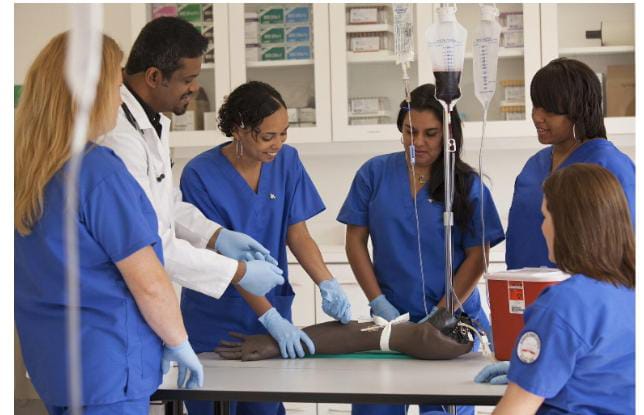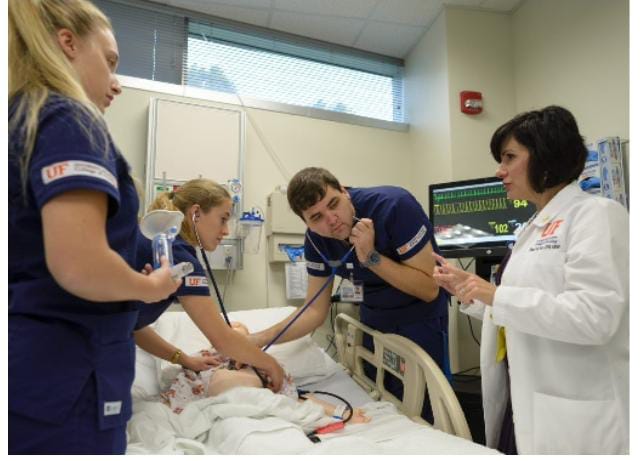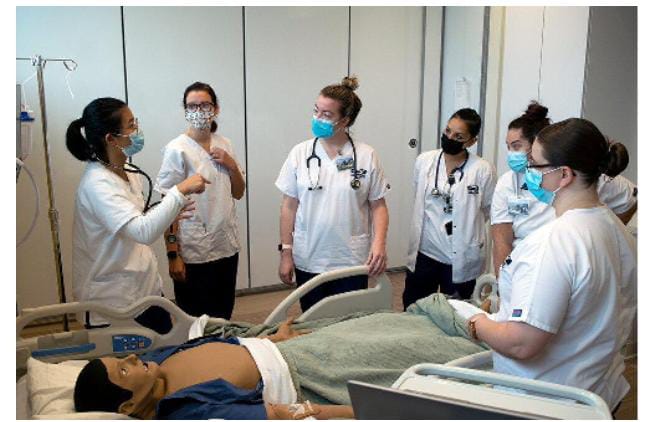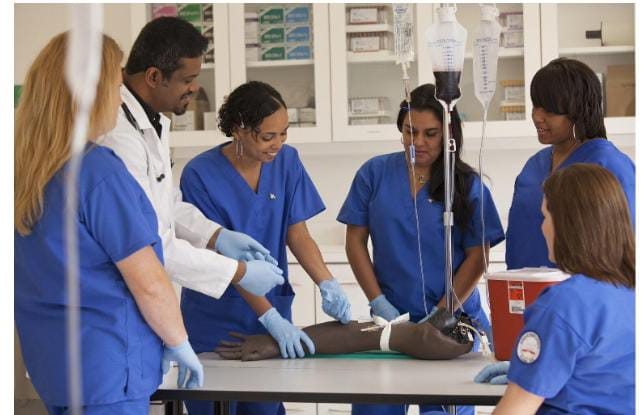In the crowd of millions who want to venture into the health-care sector, you have to be the one to choose the best nursing program. Only appropriate education is going to build the right kind of foundation for a wonderful career ahead. It inculcates knowledge and develops skills in a person, apart from practical experience in the several roles in nursing. With a plethora of education types—from community colleges to large universities—it becomes imperative for you to pick a program that suits your goals, lifestyle, and career vision for the future. The key aspects to consider while running through the checklist for a nursing program include various permutations and combinations available for a nursing degree. Finally, the tips to help you in selecting a good nursing programs colleges are included.
Nursing is not just any career; it is a dedicated, passionate, and educationally based calling. The nature and quality of the nursing education reflect in one’s future career. Good nursing education will give you:

Thorough Curricula: Anatomy, Pharmacology, patient care, ethics, and nursing theory make the core topics in preparation for the challenges of the field.
Clinical Exposures: Either actual, real-world practice opportunities that are accomplished through your clinical rotations, internships, or simulation labs.
Academic Support: Lines of resources in place to ensure that you do actually succeed—as appropriate, from tutoring spaces to academic advisors and mentor programs.
Program Accreditation: It’s assuring the quality of your degree in the sight of employers and professional boards, which really is top-notch respectability.
The rigor of a good nursing school will enable you to pass the NCLEX but also leave you very able to administer quality care to patients throughout your career.
Types of Nursing Degrees
A nursing education is, therefore, tiered, and each level creates different avenues of pursuing specialties and advancing. Here is a list of the most common nursing degrees available:

Certified Nursing Assistant (CNA)
Duration: A few weeks to a few months.
Level: Entry-level patient care, assist RNs and LPNs
Career Outlook: CNAs are used in hospitals, nursing homes, and home healthcare. It’s an entry level role that offers a fast route to break into healthcare.
Licensed Practical Nurse LPN / Licensed Vocational Nurse LVN
Program Length: Typically one year
Focus: Mid-level patient care, working under direction and supervision of RNs and physicians
Job Outlook: LPNs/LVNs work in inpatient and outpatient facilities, this includes hospitals and long-term care. Many use it as a stepping stone to RN. But some may exercise this opportunity.
Associate Degree in Nursing (ADN)
Length: Two years
Focus: This is another program that focuses on preparing students to become registered nurses.
Career Outlook: A BSN degree takes four years to obtain, and one must study such broad nursing topics as research, leadership, and public health. The graduate can take the NCLEX-RN examination.
The advantage of this degree is that a graduate can work as an RN when the degree is done.
Career Outlook: Career outlook is very promising for BSN-prepared nurses. This specialized degree with many more potential super specialty areas and career opportunities available such as advanced positions, with a higher pay scale, possible areas of nursing to specialize in.
Master of Science in Nursing
Length: Two years post BSN
Major Area of Study: Functional fields include advanced practice, leadership, education, or specialization, e.g., nurse practitioner, nurse anesthetist
Career Outlook: The MSN graduate has opportunities for advanced positions in the clinical practice, teaching, and administration linked with typically greater earning potential.
Doctor of Nursing Practice DNP) and Ph.D. in Nursing
Duration: A few years after the MSN
Emphasis: DNP is practice-based; the Ph.D. in Nursing is research-based
Career Panorama: The panorama will be to government or private-sector leadership into health care or academia
Key Factors for Selection of Nursing College
So many nursing colleges are there to choose from; which is the right one for you? I would like to list some of the important factors for this purpose.
Accreditation
However, choose a course within which the program is accredited by a credible body—check, for instance, on the list of the accredited programs of the Accreditation Commission for Education in Nursing, ACEN, or the Commission on Collegiate Nursing Education, CCNE. This will give assurance that the program is in the national standards of nursing education and that employers and the licensing boards respect your degree.
NCLEX Pass Rates
The NCLEX exam is taken to be able to practice as a licensed nurse in the United States. Look up the pass rates of the NCLEX exam for the schools you are interested in. You will be able to know the quality of the program and how effective it has been in preparing students for the exam.

Clinical Experience Opportunities
Practical experience forms an integral part of any program in nursing. Check whether the school affords as many broad and quality clinical rotation opportunities within the hospitals, clinics, and community health centers. The more the exposure to a variety of nursing environments, the better prepared they will be.
Faculty Expertise
Faculty quality: This can have a significant effect on the type of education you receive. Look for programs that have staff with expertise and qualifications in the discipline they teach and may bring experience from the field into the classroom. Faculty members actively doing research or engaged in clinical practice will be able to guide and mentor you.
d. Consider the person’s personal life and this becoming a full-time student. Most community colleges are flexible in their program offerings. Evening programs or online courses can make it a lot more convenient when a person is working or has a family and other obligations that he or she has to fit into life.
Location and Facilities
Another important consideration would be the campus location, and this is especially true if one would need to be commuting to class. Consider the college distance from the patients’ home but also from work, its facilities -libraries, classrooms or simulation labs, and its relationships with local health care providers or clinical sites.
Costs and Financial Assistance
Nursing school is expensive. And aside from considering scholarships and other types of financial aid, one has to consider tuition. Many colleges of nursing present significant scholarship, grant, and loan programs to help with funding. Keep in mind, one must consider not just tuition expenses but also the fees for books, supplies and clinical attire.
Reputation and Alumni Success
Maybe you’ve heard of those nursing schools that seem attractive due to the community’s reputation. What do you find in local reviews, rankings, or other college student testimonials from programs of interest, or from recent or later, alumni? What is the strength of their alumni network for identifying potential career mentors and job leads post-graduation?
There will be a lot of competition in enrolling in the nursing programs, especially if one is applying to the top schools. With the considerations, following are a few things to be taken into account:
Academics
I want to talk about the nursing program’s academic standards: they are pretty high, and one basically has to work really hard to keep up that grade point average, especially in science and math. Still in high school or early into college days? You’re going to want to focus on things like biology, chemistry, and anatomy the hardest.
Many of the nursing programs require some experience in the health area. This can be anything from volunteering, interning, or getting paid for the work. Experience as a CNA, EMT, or Medical assistant will benefit you greatly and will add weight to your application.
Take Entrance Tests
Most nursing programs require either the TEAS or the HESI for entrance, entry-level exam scores. These exams gauge your preparedness for nursing school in reading, maths, science, and English. Score well by being well prepared.
The personal statement provides an opportunity only for self-expression of one’s passion in nursing and why you deserve to be admitted to the course. Do not forget to bring out the motivating factors that some of the relevant experiences in your history share as to why you want to pursue a nursing degree and what concerning your future professional career objectives.
Secure Strong Letters of Recommendation
Strong recommendations can go a long way in beefing up your application. Ask for a recommendation from teachers, employers, and healthcare professionals who know you best and are better able to speak to your qualifications and how those can translate into a suitable career in nursing.
Apply Early
Several nursing programs offer contingent seating and will review applications in the order they receive them. Applying early can increase your chances at admission, so meet all of the deadlines for submitting application material, entrance exams, and financial aid forms.
A Successful Nursing Education Journey
After gaining admission to the nursing program, that is when the real deal of work starts streaming in. This is the way one should approach their journey into nursing education with massive success:

Time management
Nursing is a course with an equal share of challenges that may sometimes need time management skills. Make a timetable of your study, lay down the achievable goals, and order the tasks in their priority. Much as the combination of studying and clinical practice with personal life is a grand challenge, time management makes it easy.
Nursing school is hard, so do not be afraid to reach out to your faculty, classmates, or advisors for help. Look into what else your school may have to offer: study groups, tutors, etc.
Stay Organized
Certainly, your nursing school life is going to get you swamped. There are many types of tools such as diaries or digital apps that can improve your ability to work effectively.
Take Care of Yourself
It’s already so stressful, nursing school is. Take care of your physical and mental health. Make time for exercise, eat healthily, and relax. Do not hesitate to seek counselling services when you feel overwhelmed.
Never lose your focus to what you are aiming for, and be enthusiastic all throughout your program. This will be your guiding rationale in entering the nursing profession and how your education will make possible its provision to the patients you will be attending to.
Networking and Professional Relationship Orientation
The rule of thumb is: networking is part and parcel of a healthcare career; attend nursing conventions, get involved in these professional associations, and make personal acquaintances with your peers and educators. These relationships can bear fruit in terms of job opportunities and mentorship.
Conclusion
A good college of nursing will provide you with a lot of practical experience, the best educational foundations, and all the support needed for success. When considering nursing programs in Florida, these four elements—programmatic accreditation, the potential for clinical experiences, the quality of faculty, and flexibility in the program—must be thought through carefully. Selecting the best fit will help you reach your goals and point you in the right direction for a successful career in nursing.
Whether you are at the inception of an education or driven to search out many advanced-practice nursing careers, remember that the process is as important as the prize. Keep your focus sharp and your motivation high, making the most of opportunities that come along your way. This is what the skills and knowledge you acquire at nursing schools shall be able to bestow on you: an ability to really make a difference to a patient’s life and prepare you for a worthwhile career.




